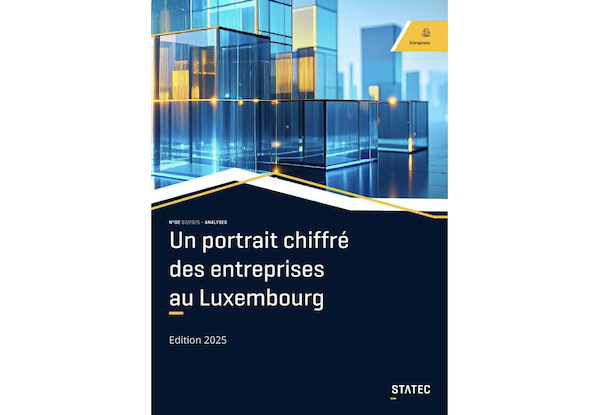
On Wednesday 30 July 2025, Luxembourg's national statistics institute, STATEC, published its Overview of Business Statistics, offering a data-driven snapshot of the country’s business landscape.
The publication provides updated figures on key economic indicators, including the number of enterprises, employment trends and sectoral activity. According to STATEC, the number of active companies in Luxembourg reached 46,770 in 2022, with the majority (over 80%) operating in the non-financial market sector.
Employment data showed that Luxembourg’s business sector employed nearly 507,000 people in 2022. Between 2021 and 2022, the number of high-growth companies (those with more than ten employees and an average annual growth in employment of over 10% for three consecutive years) increased by 6.3%.
The report also looked at specific industries. For example, the number of bakeries and pastry shops fell slightly between 2015 and 2021, while productivity in this sector remained lower than in neighbouring countries. Additionally, STATEC analysed the share of renewable energy and high-tech products in Luxembourg’s imports, as well as their countries of origin. In 2023, Luxembourg’s imports included 6.8% from high-tech products and 13.2% from energy-related goods, with Germany, Belgium, France, the United States and China among the main suppliers.
Further topics included the expansion of residential building surfaces across the country’s regions, particularly in the Centre and South, as well as the breakdown of newly registered vehicles by fuel type. In 2023, electric and hybrid models accounted for 42% of new registrations, reflecting a continued shift towards low-emission mobility.
STATEC also explored the share of companies using at least one form of artificial intelligence (AI) technology. In 2023, 8% of Luxembourg enterprises reported using AI, with automated image recognition and natural language processing being the most commonly adopted technologies. Cost and a lack of skills were cited as the main reasons for not pursuing AI integration.
The report additionally examined access to public financial aid, the intensity of R&D activities, and the representation of women among researchers in Luxembourg. In 2022, business-sector R&D expenditure stood at 1.3% of GDP, and women accounted for 29% of researchers. Only 21% of surveyed companies in 2023 reported difficulties in accessing public funding.
Finally, STATEC reflected on the use of annual financial accounts filed with the Centrale des bilans to evaluate corporate financial health and inform national and European-level indicators.
Further details and data are available on the official STATEC website.









